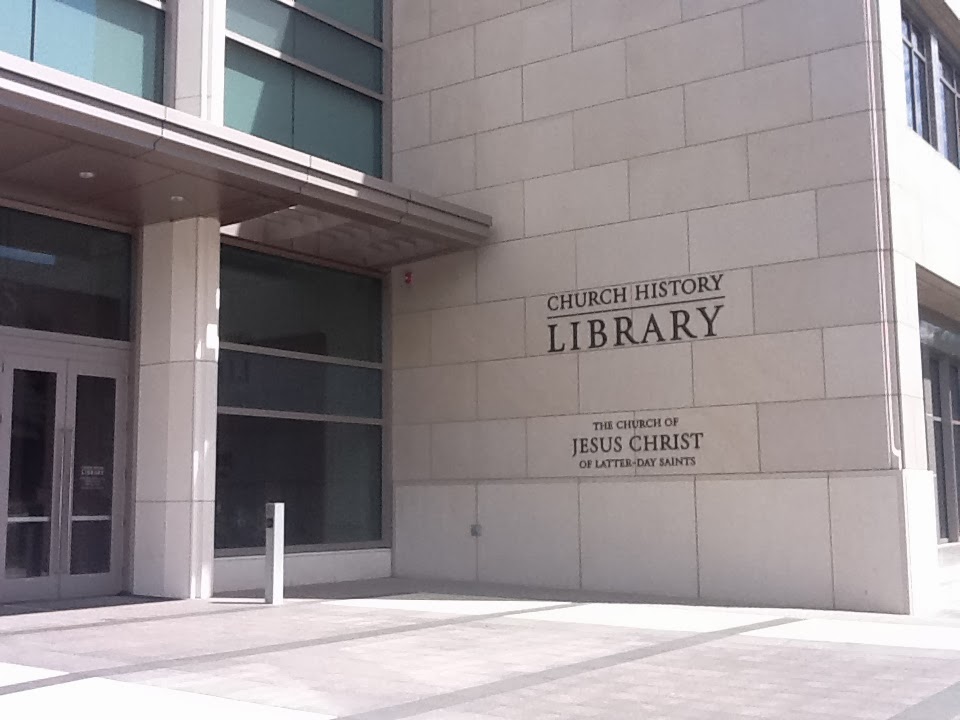Know Your Archives: The Next Generation of Mormon Studies
Today's guest post is from Tom Simpson, who holds a Ph.D. in religious studies from the University of Virginia. He teaches religion, ethics, and philosophy at Phillips Exeter Academy in Exeter, New Hampshire. His most recent published article is "The Death of Mormon Separatism in American Universities, 1877-1896" (Religion and American Culture), and his forthcoming book is entitled Authority, Ambition, and the Mormon Mind: American Universities and the Evolution of Mormonism, 1867-1940.

The question lingered, and before long, I had decided to
make a dissertation of it. It started in the stacks of my university library,
thousands of miles from Utah, with Davis Bitton's extraordinary Guide to Mormon Diaries and Autobiographies.
That opened worlds, eventually leading me to a project that would captivate
me for years.
 My first sojourns in Utah introduced me to a wealth of
material housed in the state, church, and university archives of Utah. With some critical financial support from Brigham Young University's Charles Redd Center for
Western Studies and (former) Joseph Fielding Smith Institute for Latter-day
Saint History, I could work extensively in the archives with a team of expert
archivists and scholars, who responded incredibly thoughtfully to my work and
invited me to present my research in seminars and at major conferences. In the
end, what has kept me coming back to the work, and coming back to Utah, has
been the relationality of the work,
the chance to do meaningful, collaborative historical research in
state-of-the-art facilities.
My first sojourns in Utah introduced me to a wealth of
material housed in the state, church, and university archives of Utah. With some critical financial support from Brigham Young University's Charles Redd Center for
Western Studies and (former) Joseph Fielding Smith Institute for Latter-day
Saint History, I could work extensively in the archives with a team of expert
archivists and scholars, who responded incredibly thoughtfully to my work and
invited me to present my research in seminars and at major conferences. In the
end, what has kept me coming back to the work, and coming back to Utah, has
been the relationality of the work,
the chance to do meaningful, collaborative historical research in
state-of-the-art facilities.
Still, too few non-Mormons (like myself) take advantage of
the resources available. The recent establishment of positions in Mormon
Studies at Utah St., Claremont, and the University of Virginia bodes well for
the future of Mormon Studies, but the field still needs—and deserves—a larger
and more diverse cast of characters. In a recent conversation, J. Spencer
Fluhman—associate professor of history at BYU and the author of A Peculiar People: Anti-Mormonism and the
Making of Religion in Nineteenth-Century America -- told me that this is
indeed "a golden age at the LDS archives….It's a good time to be
interested in Mormon history." Here's hoping that the field's real promise
is realized in the decades to come.
The major LDS archives
in Utah are housed in the LDS Church History Library, the Utah State Historical Society, and the special collections departments of
Brigham Young University, the University of Utah, and Utah State University. All photographs by the author.


Comments